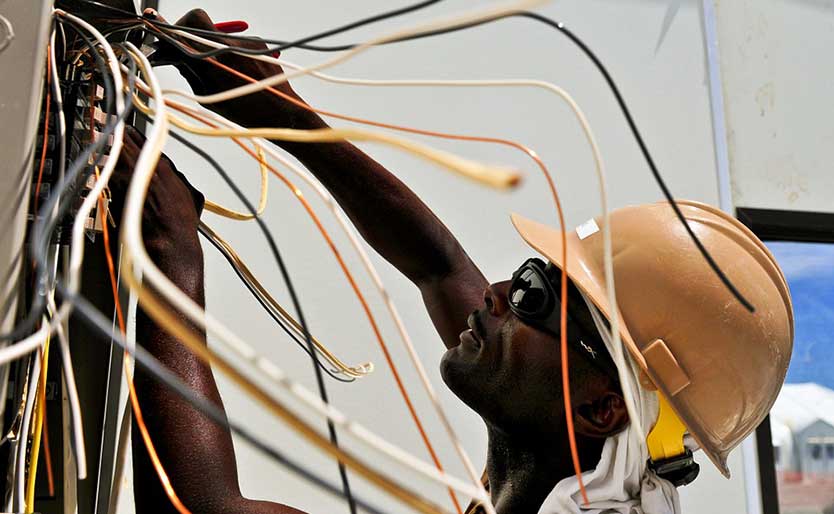There are so many ways to improve your home, that there are entire magazines devoted to the concept. One of the most important upgrades which often gets overlooked is rewiring – because it is out of sight it is often out of mind, and not seen as a priority unless there are obvious electrical issues. It is vital that the wiring in your home is up-to-date and in line with Australian Standards to reduce the risk of electrical hazards, fire, or shock. Rewiring your home generally involves replacing old wiring, powerpoints, switches, investigating the earthing system, and potentially upgrading the main switchboard components.
Rewiring is particularly crucial if you have an old home, as the original wiring may present functioning and safety issues. Older homes may also have had DIY electrical work done at some time, and it is quite likely that the wiring is outdated, incorrectly installed, and possibly dangerous.
Most older homes have only one circuit for all of the power outlets. This means that all the appliances are powered from only one point. Maybe you have experienced the common issue of a fuse blowing when there are too many appliances being used at the same time – like the heater, the microwave, or the TV? If so, you should definitely look into having your home rewired, as this will eliminate power trips by dividing the outlets over multiple circuits, so they don’t get overloaded and blow a fuse.
It is both unsafe and illegal to conduct your own DIY electrical work – you must always use a licensed professional electrician. Before deciding on an electrician, make sure to check the electricians’ credentials carefully. They must hold a current license in your state, have up-to-date insurance, and offer a compliance certificate upon completion of the job.
The cost will vary dramatically depending on a number of factors including:
· The size of your home – copper wiring itself is not cheap, so the amount of wiring required will greatly affect the overall cost. The average cost is around $600 for a standard home
· The parts required – such as; outlets and dimmer switches
· Labour cost – hourly rates tend to vary from $80 to $120 per hour, and the number of hours will depend on the size of your home as well as the accessibility of your wiring
· Whether or not you require a building permit for the work to be carried out – your electrician can let you know if you do need one, and may even be able to organise it on your behalf. The cost of a permit will vary depending on where you live
· Whether or not you need to upgrade from electrical switchboards that run off fuses – if you do, the entire switchboard will need to be replaced. This would cost at least $1,000.
Quotes for rewiring will generally be based on the electricians set rates per light fitting, switch and outlet, plus the cost of switchboard replacement and other miscellaneous items. These vary greatly – outlet rates alone vary from $65 to $120 each. Instead of only asking for an hourly rate, be sure to ask for a detailed quote for the entire job. Detailed, itemised quotes will help you compare quotes from competitive electricians.
It is normal for quotes to vary dramatically based on all of the above. Overall quotes to rewire a typical three-bedroom home can vary from anywhere between $4000 to $8000, so be sure to do your research and shop around for a quality electrician at a competitive price.

